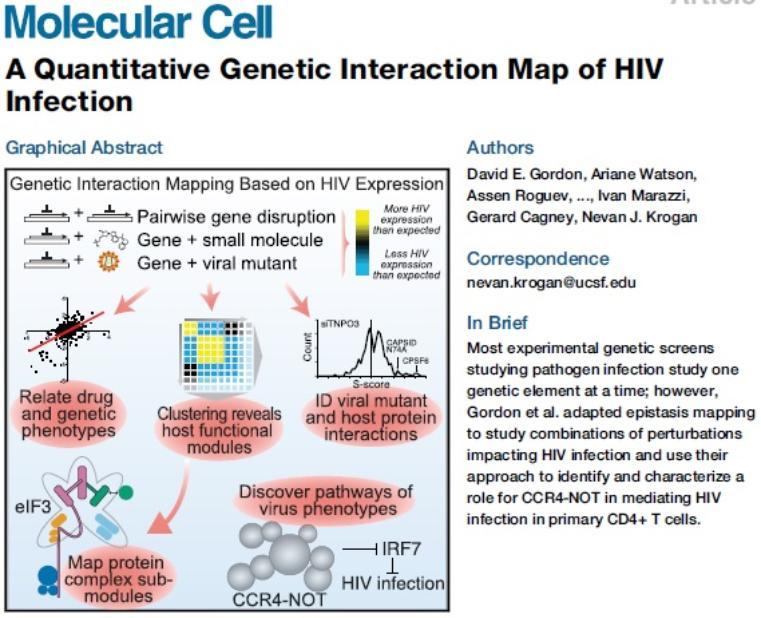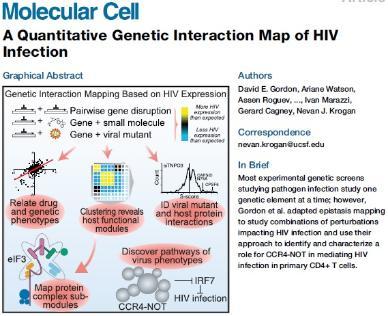New study uses a large-scale genetic approach to uncover human genes controlling HIV infection
News and Events
- 2024
- 2023
- 2022
- 2021
- 2020
- ENGAGE 2020 Grand Final
- SFI funding award for SARS-CoV-2 water surveillance project
- Genetics graduate creates new card game
- Conferring of PhD & MSc graduates June 2020
- Class of 2020 Undergraduate graduation
- New study uses a large-scale genetic approach to uncover human genes controlling HIV infection
- NSI Young Investigator Symposium 2020
- 2019
- 2018
- 2017
- 2016
- Vacancies
New study uses a large-scale genetic approach to uncover human genes controlling HIV infection
SBBS graduate Ariane Watson is co-lead author of a paper published in Molecular Cell on February 17 describing a map of HIV infection that highlights genetic vulnerabilities during the infection process. The work was carried out while Ariane was a PhD student in Gerard Cagney's Lab, and involved scientists from the Gladstone Institute in San Francisco and the Mount Sinai School of Medicine in New York, and was led by Nevan Krogan.
A previously unknown link between an RNA processing enzyme complex and the innate immunity pathway was discovered, showing how the virus can manipulate the host's protein network. By identifying host factors that HIV depends on, potentially new therapeutic approaches that are less likely to lead to viral resistance can be investigated. Furthermore, the approach is flexible and could be adapted to other pathogens, including other viruses, bacteria, and parasites.

Link to full story from the UCD Conway Institute here and link to Molecular Cell journal publication (opens in a new window)here
New study uses a large-scale genetic approach to uncover human genes controlling HIV infection
SBBS graduate Ariane Watson is co-lead author of a paper published in Molecular Cell on February 17 describing a map of HIV infection that highlights genetic vulnerabilities during the infection process. The work was carried out while Ariane was a PhD student in Gerard Cagney's Lab, and involved scientists from the Gladstone Institute in San Francisco and the Mount Sinai School of Medicine in New York, and was led by Nevan Krogan.
A previously unknown link between an RNA processing enzyme complex and the innate immunity pathway was discovered, showing how the virus can manipulate the host's protein network. By identifying host factors that HIV depends on, potentially new therapeutic approaches that are less likely to lead to viral resistance can be investigated. Furthermore, the approach is flexible and could be adapted to other pathogens, including other viruses, bacteria, and parasites.
 Link to full story from the UCD Conway Institute here and link to Molecular Cell journal publication (opens in a new window)here
Link to full story from the UCD Conway Institute here and link to Molecular Cell journal publication (opens in a new window)here